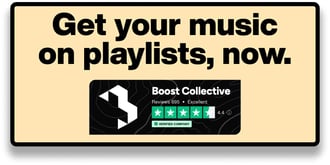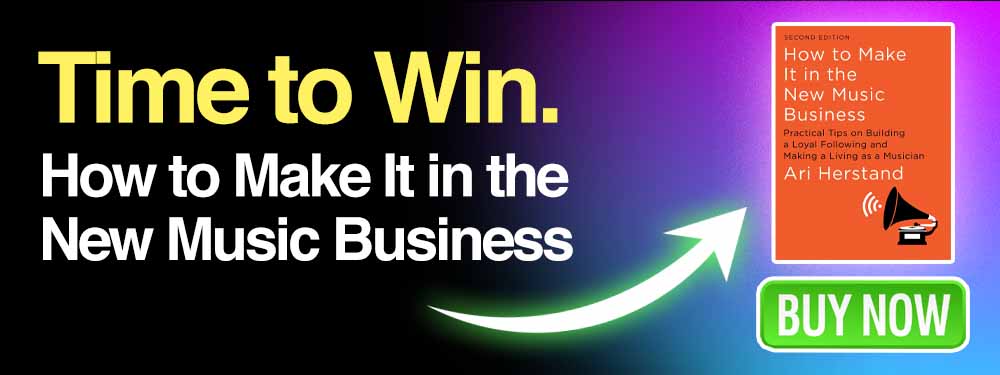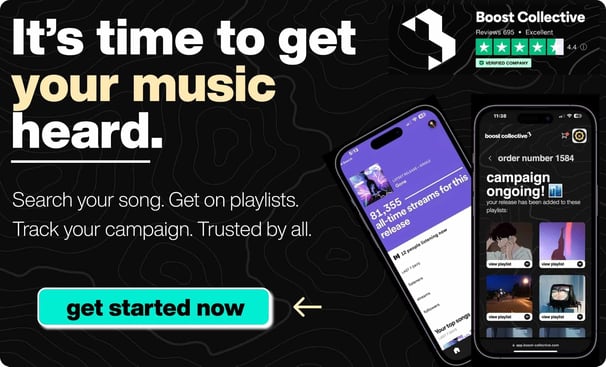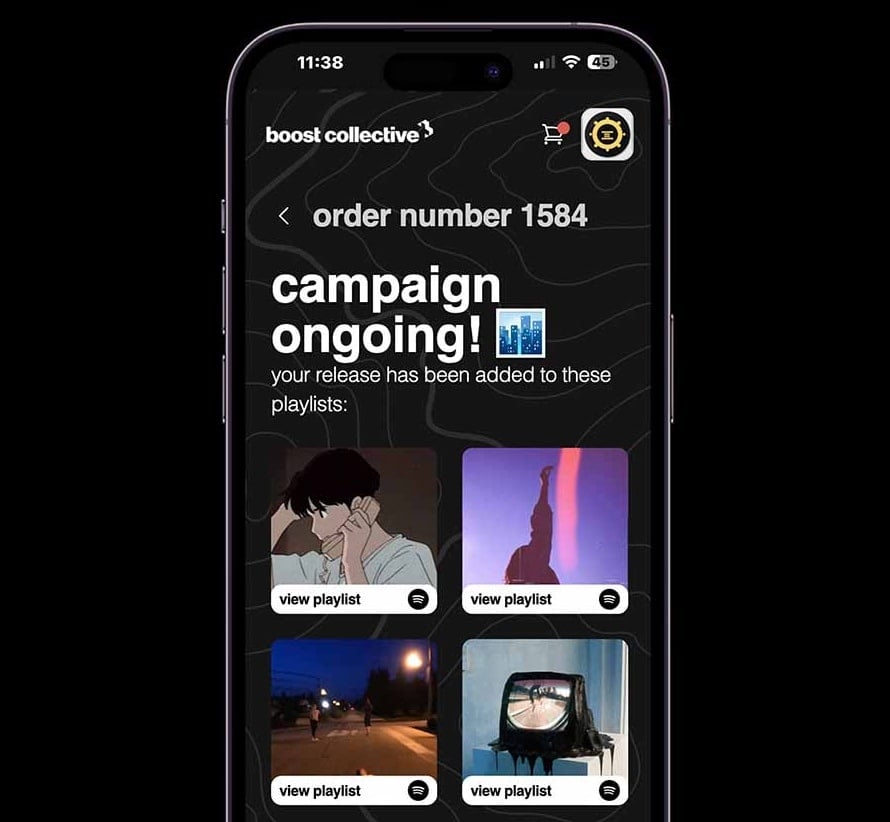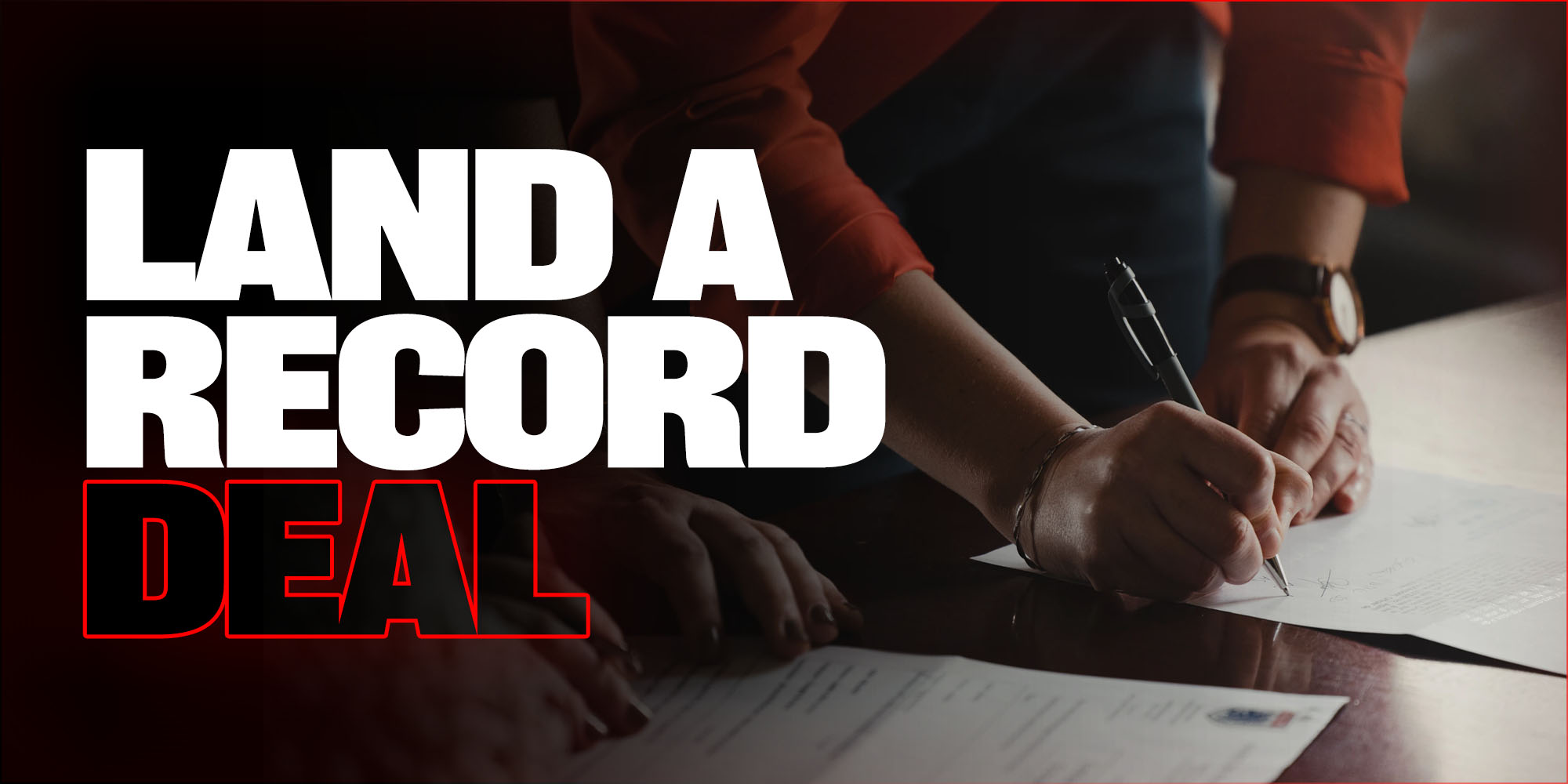
5 Easy Steps to Get a Record Deal
The music industry is changing more than ever before.
The days of relying on labels to give you a shot at fame are long gone…
Now, aspiring artists have a chance to succeed on their own terms.
That said, getting a deal will do loads for your music business expansion!
To succeed as an independent artist you should consider getting a record deal.
Fortunately, getting one doesn't have to be as complicated as you think.
5 necessary steps to getting a record deal:
-
Make an attractive song demo
-
Cultivate a unique artistic persona
-
Build a fan base
-
Submit to A&R reps
-
Find a music agent
With a few of the right strategies, you can get there in no time.
Many artists skip these steps...
And lose out on a world-class record deal.
Don't let that be you!
This will bring more harm than anything.
Check out these 5 steps you can take to get a record deal and kickstart your music.
Want to get your music on active & relevant playlists that actually get results?
Get your music heard now 👇
Boost Collective is the #1 trusted source of music distribution for artists - You can protect your content and earn royalties whenever it is being used. Enjoy!
Step #1. Make an Attractive Song Demo
Demos are the bread and butter of a music-biz career.
They serve the same purpose as a press release: introducing you to the people who matter.
Your demo is what the label listens to - many major labels require a demo before a personal connection is even made.
That's just how the music industry works in today's world.
If you want to get a record deal, this is an important step for any independent musician.
This will help you Get Signed to Spinnin' Records!
What is a music demo?
Here are the music demos explained.
Every singer-songwriter dreams of having a recording contract...
But for most artists, that’s a long shot.
Instead, most artists share their music through the music industry by way of a music demo.
While most musicians will immediately cringe at the thought of a demo, it’s an essential step for any aspiring musician.
A demo is a recording of your song that gives record labels and producers a sense of your song’s quality and style.
A music producer will listen to your song, take notes, and then they will record a demo version of your song to share with potential labels.
It takes a team to build a demo worth of the right record label.
Otherwise, you can't get a record deal (or one that you dream of.)
Read THIS Before Signing a Record Deal.
This banner above (with the book) ☝️ is the BEST resource in the music biz.
This book is widely used in music schools around the world and was called "the best how-to book of its kind" by Music Connection.
Do NOT sign any record deals before you've read this book. It's only $25 and has world-class information.
It inspired thousands of people to stop waiting for their "big break." and to claim success!
- Mastering social media
- Mastering the art of merchandising
- Embracing real connections with fans
- And just learning how to keep going
5 Best Music Demo Examples
It's hard to get a record deal through a demo... If you don't know how it should sound.
No worries, I got you!
Pretty much all label artists had to make a demo to get their record deal.
Here is a list of some really good recording artist demos.
#1. Taylor Swift Demo
#2. Kanye West
#3. Travis Scott Demo
#4. Justin Beiber
#5. Tyler The Creator
These demo songs are probably one of 10 that they made - label artists take this seriously.
Many artists don't make demos these days it ain't won't help them get a record deal.
Stuff like this can help you Get Signed by Internet Money!
How to Record a Song Demo
Recording a demo is a simple process.
This can be done by anyone with a microphone, a computer, and a song to record.
let the listener know why you should be the one making music for them.
Give them a sense of who you are as a person and what you've got to offer as a potential musician.
You’ll have to:
-
Add any signature sound effects you use
-
Make vocal distortions
-
Tweak every frequency to sound perfect
It should be a glimpse into your best work.
You won't upload the demo to Apple Music, but still, make it look good.
You'll gain much more fans through these unreleased tracks than your major releases on streaming platforms.
You'll want to start by recording basic demos with whatever equipment you have available. Invest in better equipment and recording gear later on if you can afford it.
It’s not enough to just hum a few notes or play a few chords on your guitar.
Instead, you need to present your music in a way that showcases your talent and your ability to make it as a musician.
Go to a local professional studio and get help from the engineer.
How Long Should My Music Demo Be?
Your music demo should be concise and to the point.
To get a record deal, you can't submit subpar music to these major record labels.
The demo should focus on your talent and the future of your music career.
It should be a taste of what the major label will get as you release music through them.
Remember that it is supposed to showcase why you should be the one making music with the label.
So what’s the ideal length for a music demo?
The ideal length for a music demo is 3 minutes and 20 seconds. Make sure it is short and to the point, and try to keep it as concise as possible. Nothing less and nothing more.
If it feels like it is dragging on for too long, you can always cut some parts out.
You want to present your talent, not your entire life story.
If your demo is too long, you risk overwhelming your prospective clients and losing their attention.
There is no need to include every detail about your life, your family, your pets, and so on.
The record label needs to get a sense of who you are as a musician and why they should sign you.
Cost to record a song demo
Everyone has a story in mind about how much it costs to record a music demo.
For some people, it might be a couple of hundred dollars while others might hear that number as high as thousands of dollars.
It's hard to say how much it costs to record a music demo.
The basic demos you hear on YouTube may have cost thousands.
But it's possible to estimate the price based on the types of recording equipment used, song length, and if the artist has a producer.
Here are the average costs to record a music demo:
| Genre | Average Demo Recording Cost |
| Rap | $200 |
|
Pop |
$300 |
| Rock | $800 |
| Country | $400 |
It won't cost hundreds of thousands, but it's still a pretty penny.
You have to be ready to pay a bit before signing.
Keep in mind that the cost of recording a music demo includes studio time, mixing, and mastering costs.
A rock band pays the most simply because of the complexity of recording.
Since rappers don't have all this band equipment to deal with, they can create stuff easily.
Breaking as a band is tough in this current age, even with YouTube and social media you'll need to put in a lot of hard work to get ahead.
A great way to save money on recording a music demo is by using equipment that is below-average quality, like GarageBand and cracked FL Studio.
I don’t recommend it… But let’s be real, it saves a ton.
You should ask your friends if you can borrow their equipment as well, the more you network the more opportunities you’ll have.
5 Free Record Label Demo Submissions
When you submit your demo to labels and music producers, it’s up to you.
Do you want to send your demo to the ones who you have a relationship with?
Or those who are looking for new talent.
Most musicians send their demos to a handful of people to begin the submission process.
Here are the top 5 labels accepting demos:
-
Boost Collective
-
Virgin Records
-
Dala Records
-
NoFace Records
-
Fools Gold Records
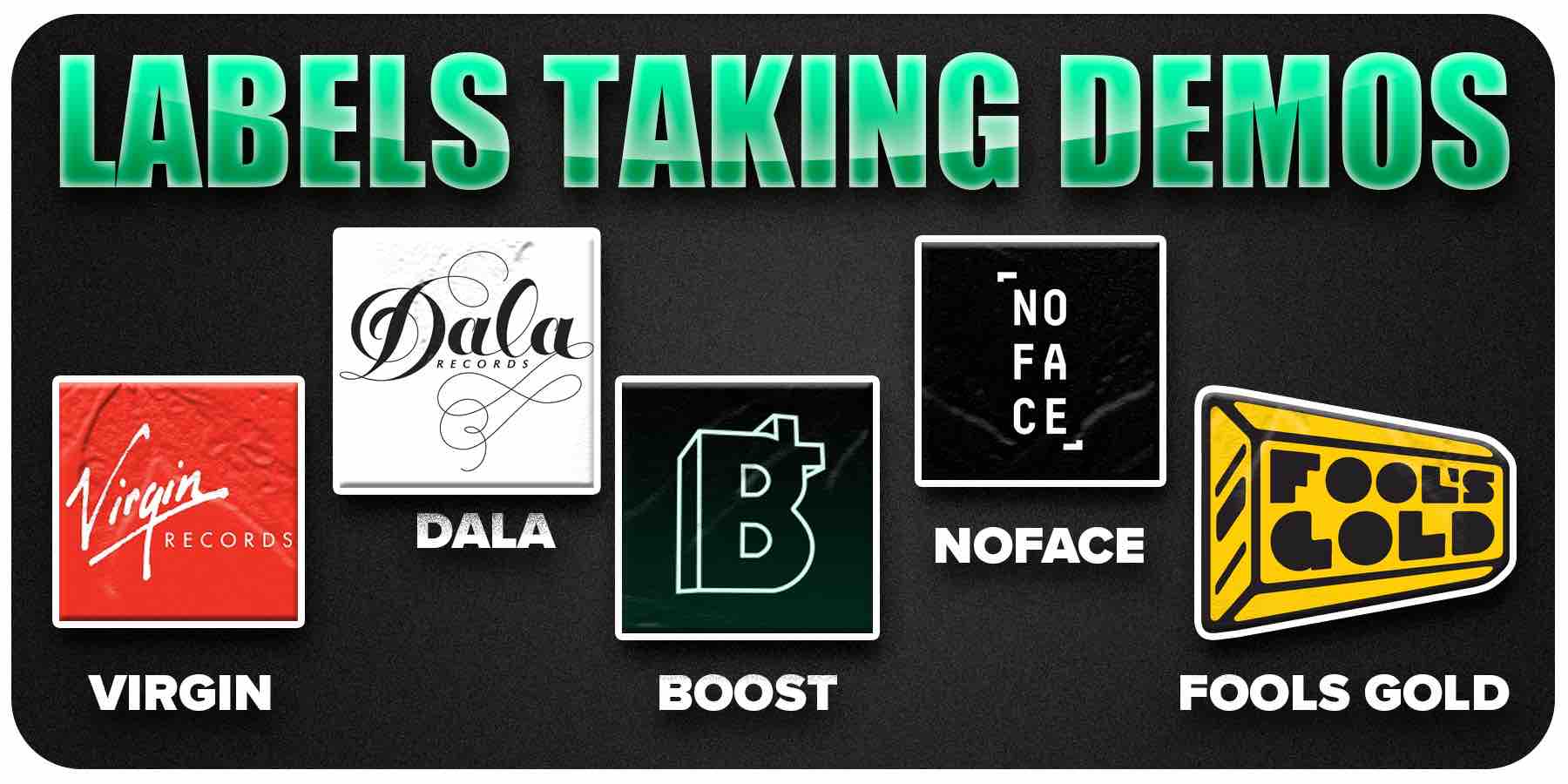
They're always signing new acts!
If you want to get heard around the world this is the golden ticket you're looking for.
Note: a lot of these labels own subsidiaries.
Difference Between Demo And Song
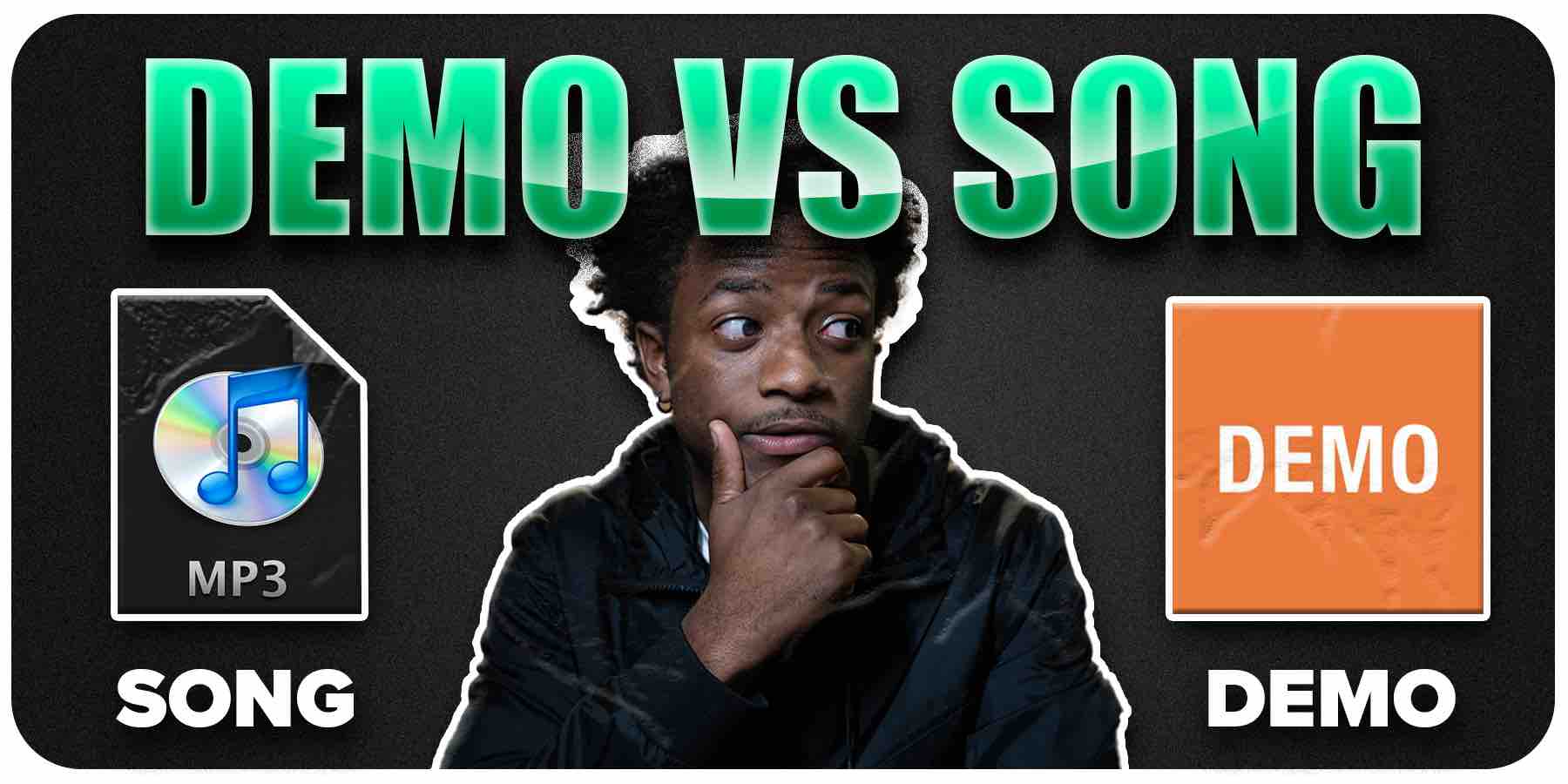
The demo vs. song debate is a common one in the music industry.
Are demos the same as songs?
Is one better than the other?
Or are they just different tools for different jobs?
This is the difference between demos and songs:
Demos are recordings of songs played by musicians, intending to attract interest from record labels and/or other interested parties. Songs are longer, more ambitious, and made with more creative freedom.
Demos are useful for gauging a songwriter's ability to perform.
There are many different types of song types, including demo songs, cover songs, and original compositions.
Some artists and songwriters, particularly those in the pop, R&B, and hip-hop genres, prefer writing and recording cover songs.
Especially when collaborating with other artists, the final sound is different from a demo.
Step #2. Cultivate A Unique Artist Persona
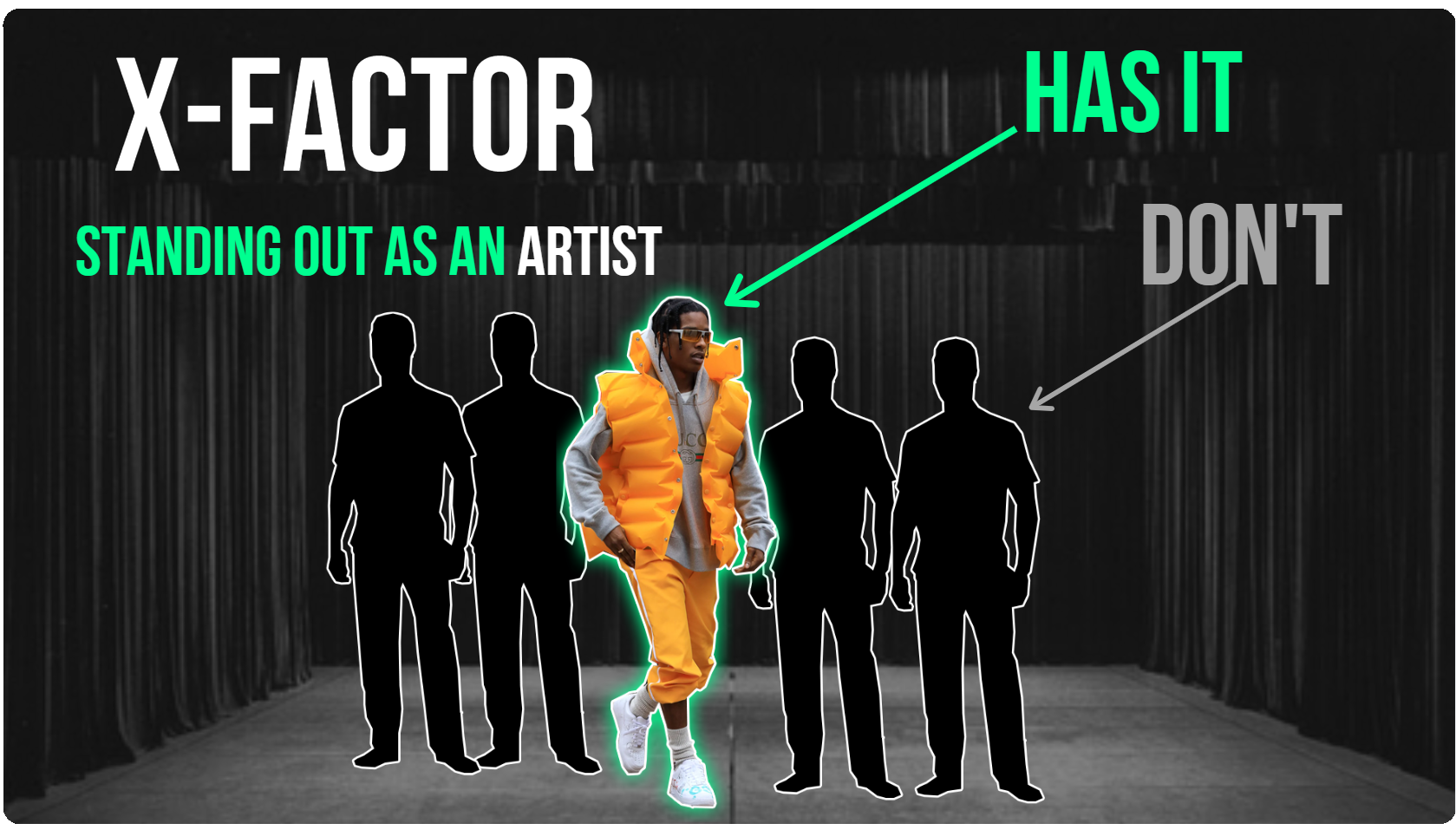
The best way to stand out from the crowd is to come up with a unique take on a specific genre.
You can try doing this by looking at other artists who are successful in that genre.
As well as that, you should be sure to think outside the box and come up with an original idea.
One way to do this is by looking at the history of your chosen genre.
What have been some of the most successful artists in that genre?
If you can find a way to be different from them, but also have something important to say, that’ll be a great way to stand out from labels and get them interested in what you’re doing.
Research Different Labels and Their Brand Vision
You can’t get in contact with labels if you don’t know which labels you’re looking for.
Before you start hunting for labels on social media, you should research and find out exactly what kinds of labels are looking to sign new acts.
You can go to Google and type in “X label roster” in the search bar.
This will give you information about different types of labels and their artist criteria.
Different labels sign different acts.
You'll never see 50 Cent on a K-pop label. It just doesn't make sense.
Once you know what the different types of labels are, you can use that knowledge to help you get in touch with labels that might not be on your radar.
Summarize Your Artist Value
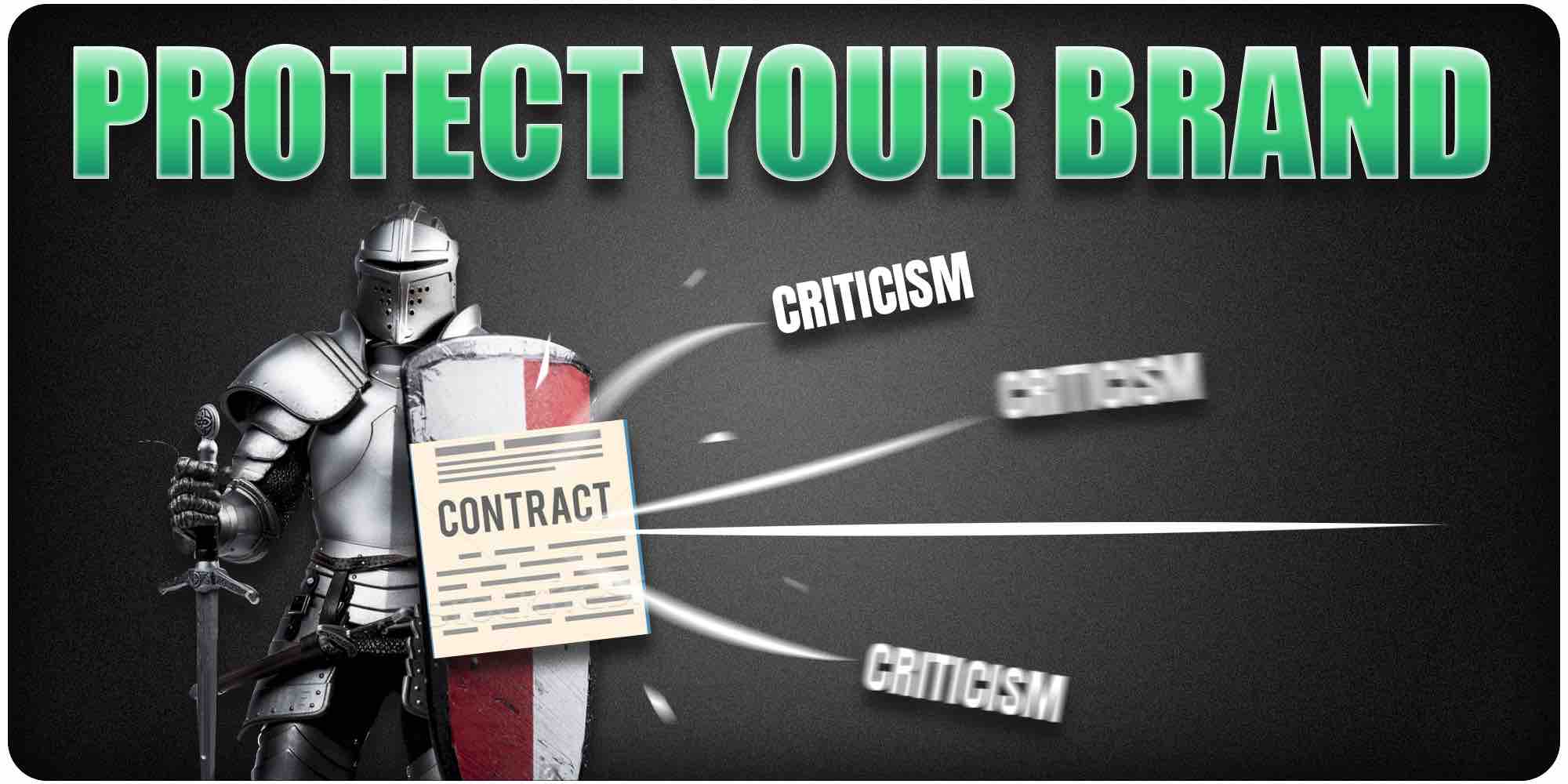
When it comes to applying for a record deal, it’s important to summarize your artist's value.
How to summarize your artist value:
Write down three to five things you could potentially say. Once you’ve written down those things, try to think of ways you could say them differently while still staying true to your original idea.
This is the best way to show labels that you’re ready for the industry to take notice of you as a musician.
Take some time to think about how you would summarize your artist's value if you were applying for a record deal.
This process will allow you to tighten up your artist value summary, making it easier for record labels to see what you have to offer.
Step #3. Build a Fanbase
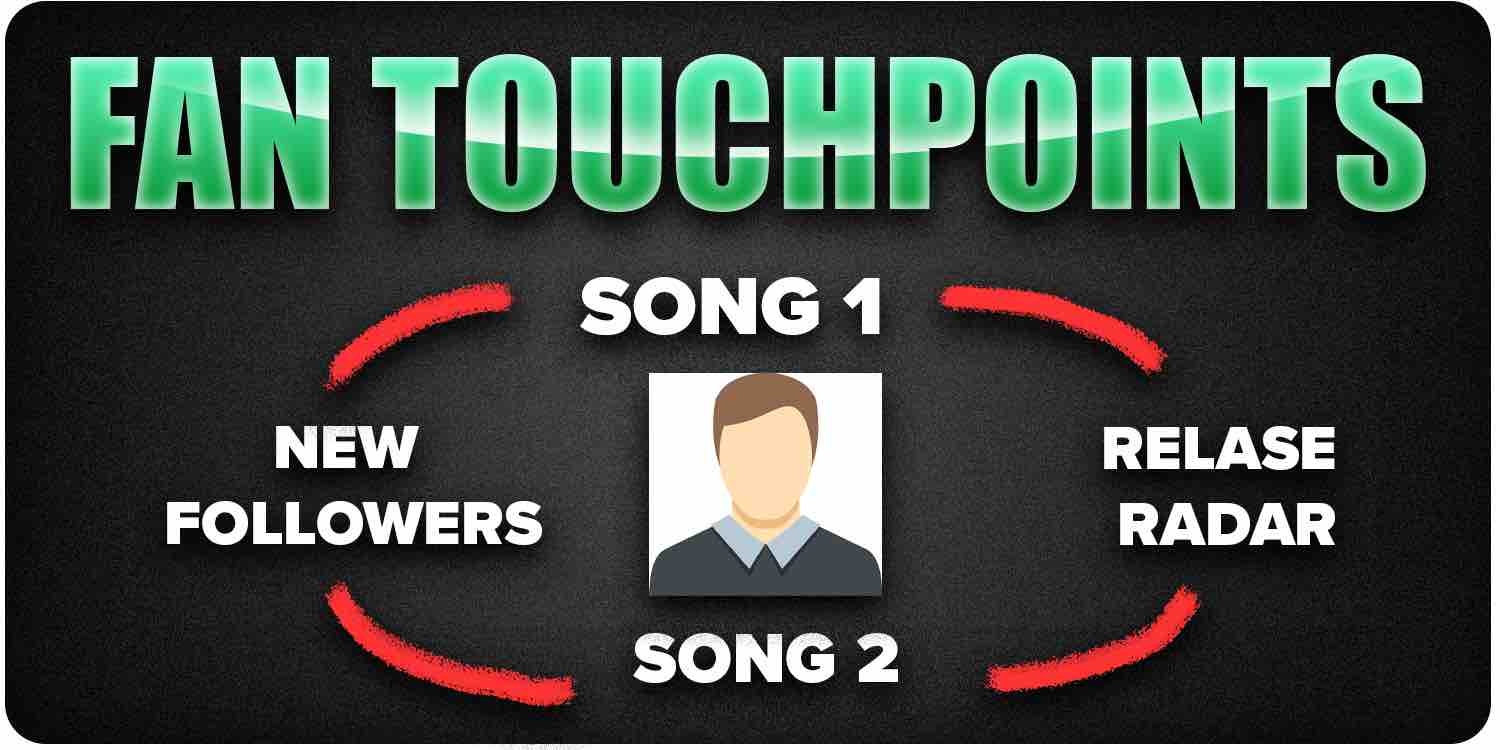
This is the most important part of the process.
When you’re first starting, you don’t have much of an advantage over the thousands of other musicians who’ve also been vying for a record deal over the years.
If you put in the work, it’s one of the most reliable methods of building a devoted fan base.
Here are the 3 most effective ways to build a music fanbase:
-
Post trendy social media content
-
Collect emails and numbers
-
Collaborate with other artists
You need to bring new fans onto your stream platforms and social media accounts to stand out.
This proved to the record label that you're worth investing in, compared to other independent artists with 40 monthly listeners.
Do these, and you'll increase your odds of getting a record deal in no time!
Post Trendy Social Media Content
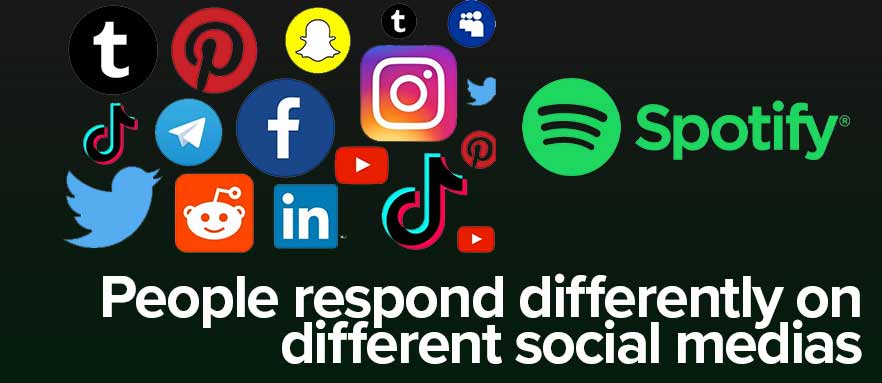
One of the best ways to build a fanbase is through social media profiles.
You can’t expect to build a massive fan base through traditional methods like a radio play, because the industry is changing with the times
The algorithm runs discoverability.
Whenever there are new trends, hop on them and add your twist!
New fans only care about aspiring artists who can entertain.
Your social media platforms should show the world why you matter, and showcase your great songs.
This is your best bet at building an organic fanbase on social.
Some independent musicians manage to get a record deal with just socials.
(Justin Bieber got his big break off of YouTube!)
The business has changed a lot!
It’s now much easier for fans to discover new music than ever before, and the best way to show them your music is through social media.
Collect Emails and Numbers
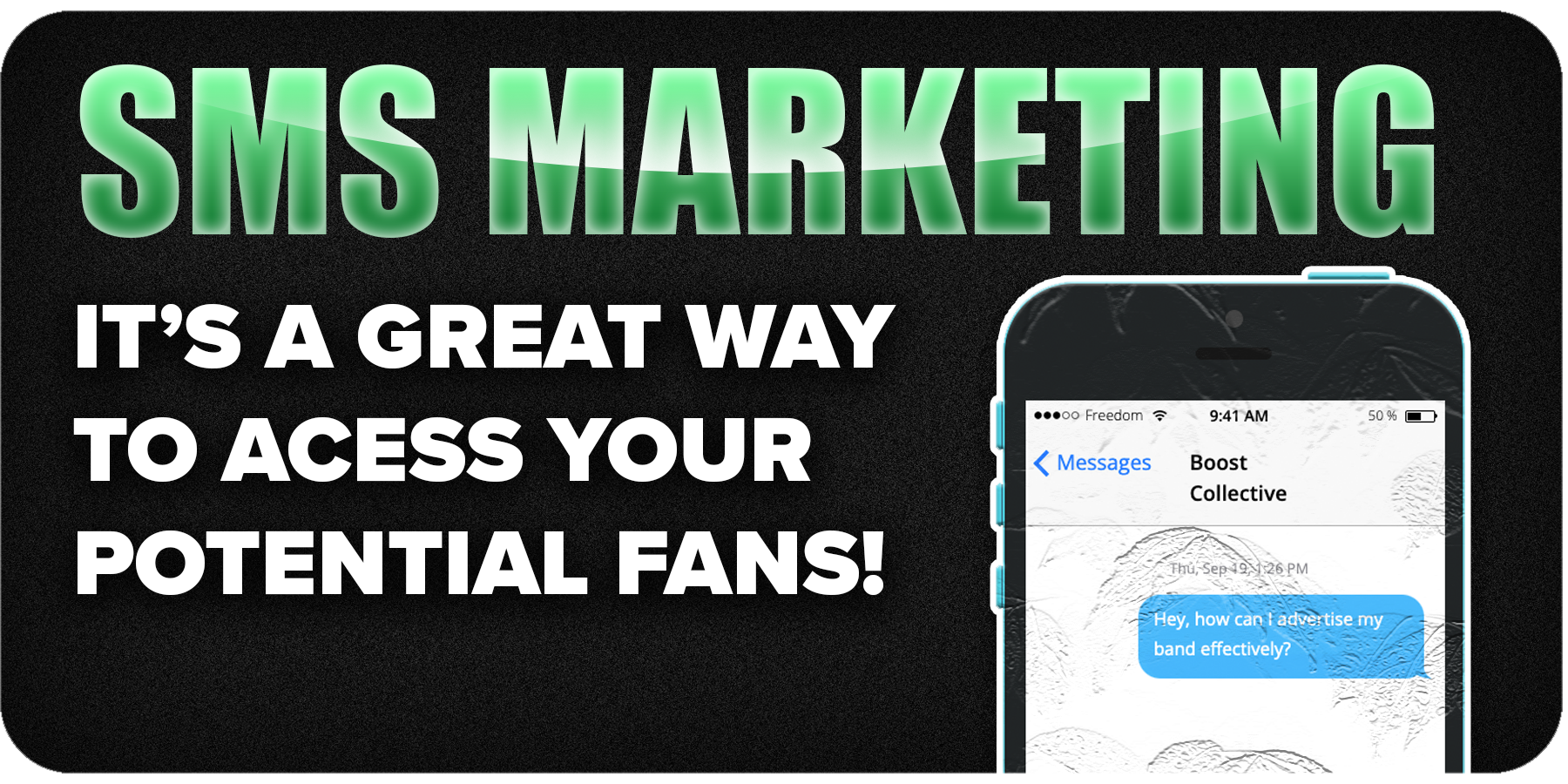
Another great – and easier – way to build a fanbase is through email and SMS access.
You need to be able to contact fans directly, without the use of social (in case something happens.)
The best way to collect emails is through live events and giveaways.
Success for independent musicians comes from a large email base.
Event pre-sales are when fans purchase tickets to your upcoming shows before they go on sale to the general public.
This is a huge opportunity to collect your fans' contacts!
Network and Collaborate with other musicians
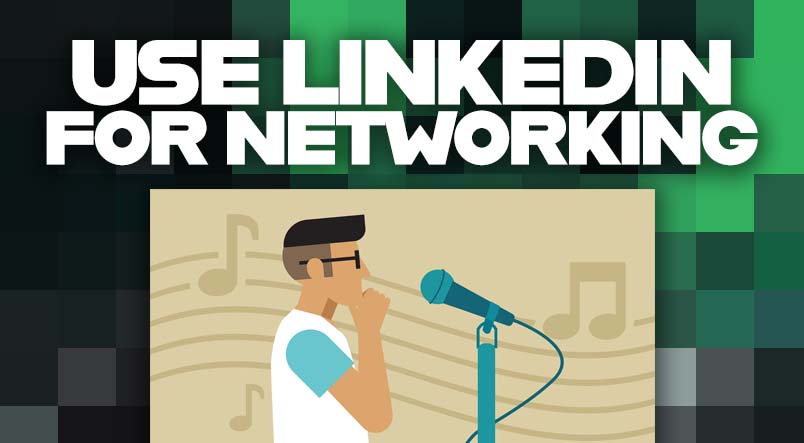
Building partnerships is one of the best ways to get your name out there and get labels interested in you as an artist.
One type of partnership you can consider is cross-promoting.
Cross-promoting is when two different artists are featured in a single track or content post so that both of your names are featured in the release/content.
(This is a great way to build partnerships with other artists as well as labels!)
Cross-promoting can work very well when you’re trying to build partnerships with larger artists because they’re always looking for artists to develop.
The bottom line of building fans
As an introvert, you might feel like you have to work twice as hard as your extroverted friends to build a fanbase.
Truth is, most artists feel like they're constantly hitting a wall here - not just you.
You need to be comfortable with who you are and what you have to offer.
You need to be able to communicate your values and interests in a way that shows your potential fans that you’re worth checking out.
Step #4. Submit Music To A Record Label A&R
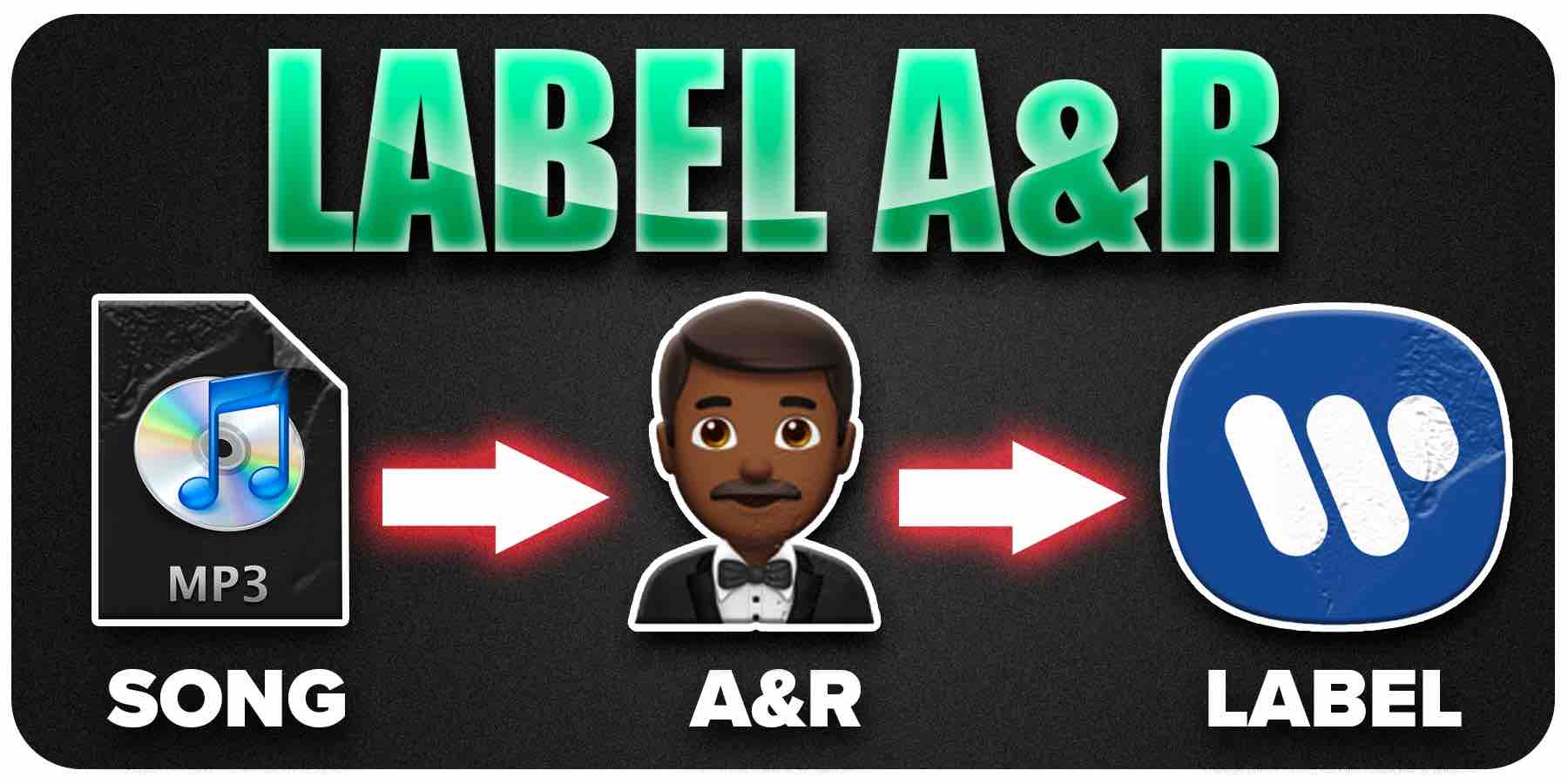
After years of honing your craft, you’ve finally got a solid album and an army of diehard fans.
Now what?
Now you submit to record labels and A&R teams for the chance to launch your career.
There’s a reason why labels and A&R teams exist – they’re the ones at the top of the food chain.
Asking them to listen to your music is like asking the big dogs to eat the little ones up the back.
Here’s everything you need to know about building a solid A&R submission dossier.
Tips for writing a solid A&R submission
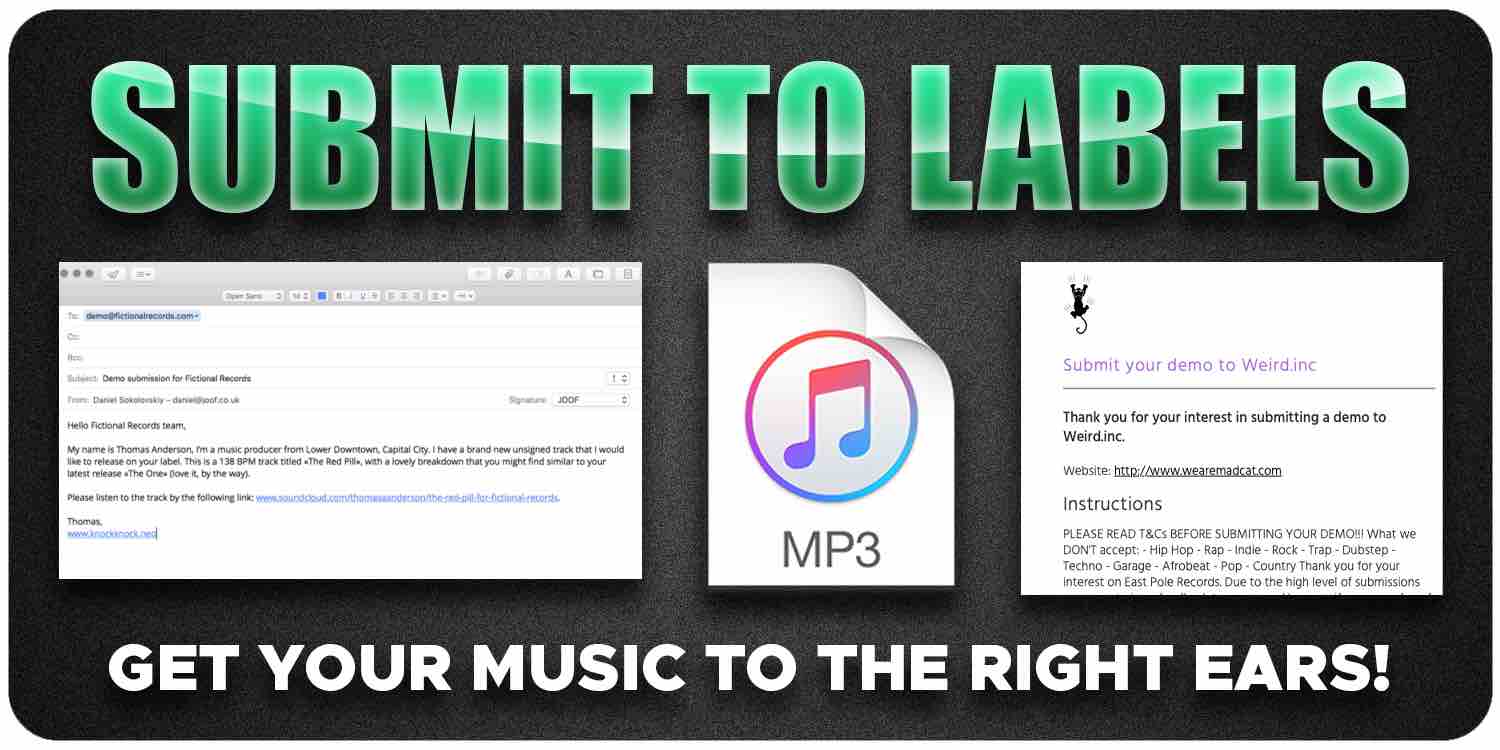
The first piece of advice for submitting to A&R teams is to have a plan.
You’re submitting your music for a reason.
What is that reason? That’s what you have to explain in your submission.
Here are the questions your A&R submission must answer:
-
What makes your music unique?
-
What makes your fans love you?
-
What’s your biggest obstacle to success?
-
Why is A&R team X your best bet, instead of team Y?
These are the questions you want to answer in your A&R submission dossier.
Many major labels care about these things, it makes all the difference.
Writing an A&R submission isn’t about you.
It’s about your music and the story you have to tell.
So don’t get attached to your creative ideas.
Think like a reporter instead, putting yourself in the shoes of a potential reader and magazine editor.
Start with the end in mind, knowing that A&R teams will do their research and, hopefully, come away with a few ideas of their own.
You Must Network With A&R Teams To Get Ahead
A&R teams are busy people, and they’re only human.
You’re not going to become their BFF over a few weeks, but you can add them to your phone, email, and LinkedIn contacts.
Once you’ve done that, you should be able to ping them when you have a need, such as a meeting or a press release.
Sometimes they just won’t have time to meet with every artist who contacts them.
That’s where your networking skills come in.
You’re going to have to build a solid network of contacts over time, and the only way to do it is by developing relationships.
Get to know everybody in your industry, whether they’re musicians, promoters, crowdfunding and merch people, or journalists.
Design Your Music Industry Press Kit Perfectly
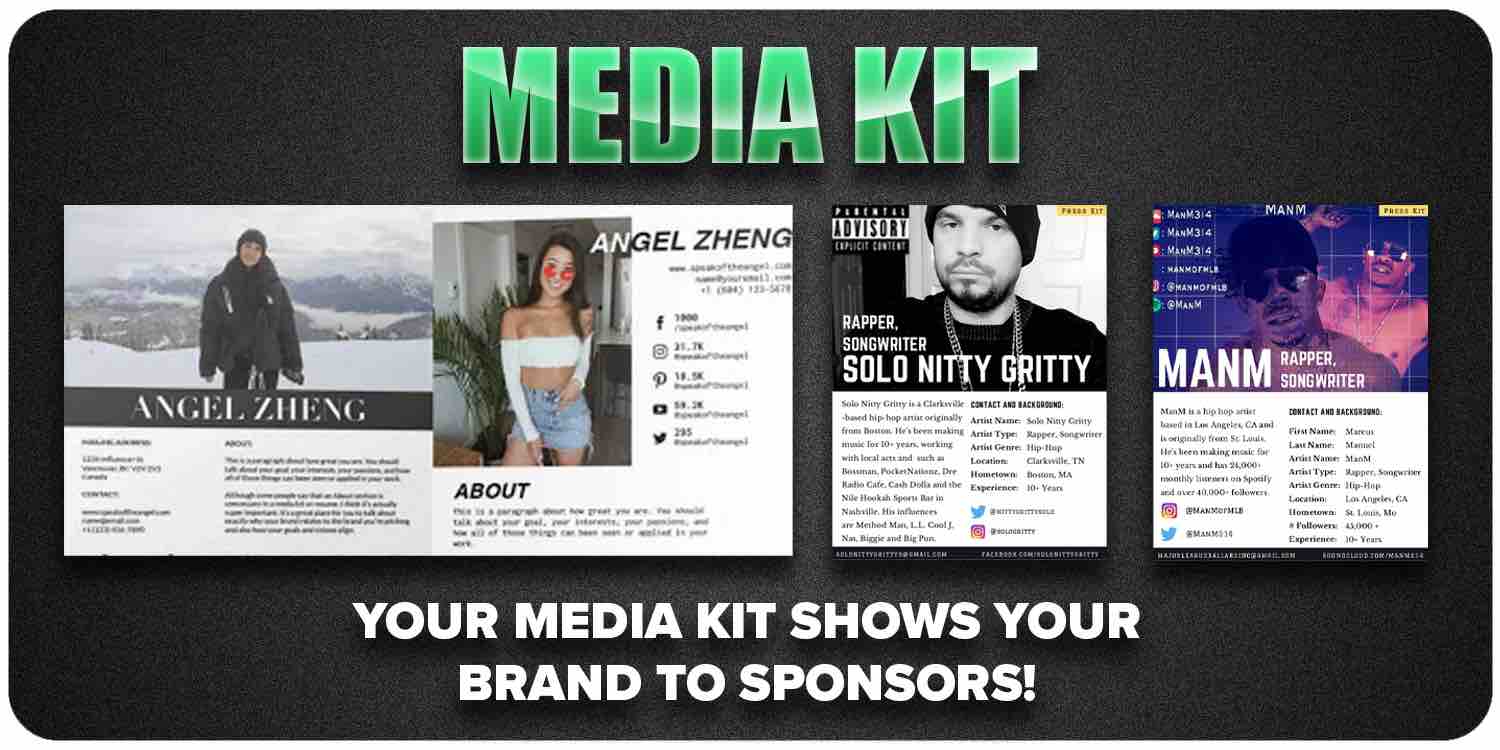
You probably know this already, but it bears repeating:
Your cover is the first thing an A&R team will see when they open your submission.
It's one of the things that make or block an independent musician from signing record deals.
When sending your press kit - design it with the intention that the A&R cares about aesthetics.
Your cover should be a reflection of your music, marketing your creativity to potential buyers.
We recommend a series of color photographs for album covers, as opposed to an image that’s been cropped or photoshopped to a certain theme.
If it’s a portrait of your brand, make sure that’s the focus.
Don’t add a bunch of other random details to make your cover seem more interesting.
Do more with your cover than just find a cool photo.
Use your social media and online store platforms to add some graphics to your cover art so it distinctively reflects your brand.
There's no shame in hiring designers from Boost Collective or Fiverr to design your press kits.
Step #4. Find a Music Agent
Finding a qualified music agent is easier said than done.
Hiring an experienced music agent requires careful market research about every possible candidate. This is then followed by some face-to-face meetings in person depending on where you are located.
You’ll have to network with hundreds of people before you find the right person.
Your dream record label deal is waiting for you!
The right agents can refer you to the right record label and get your music career started.
How to find a music agent
It's not easy to find a good music agent!
To find a music agent, try cold emailing or approaching musicians you follow on social media for referrals. LinkedIn and Twitter networking are effective for locating agents.
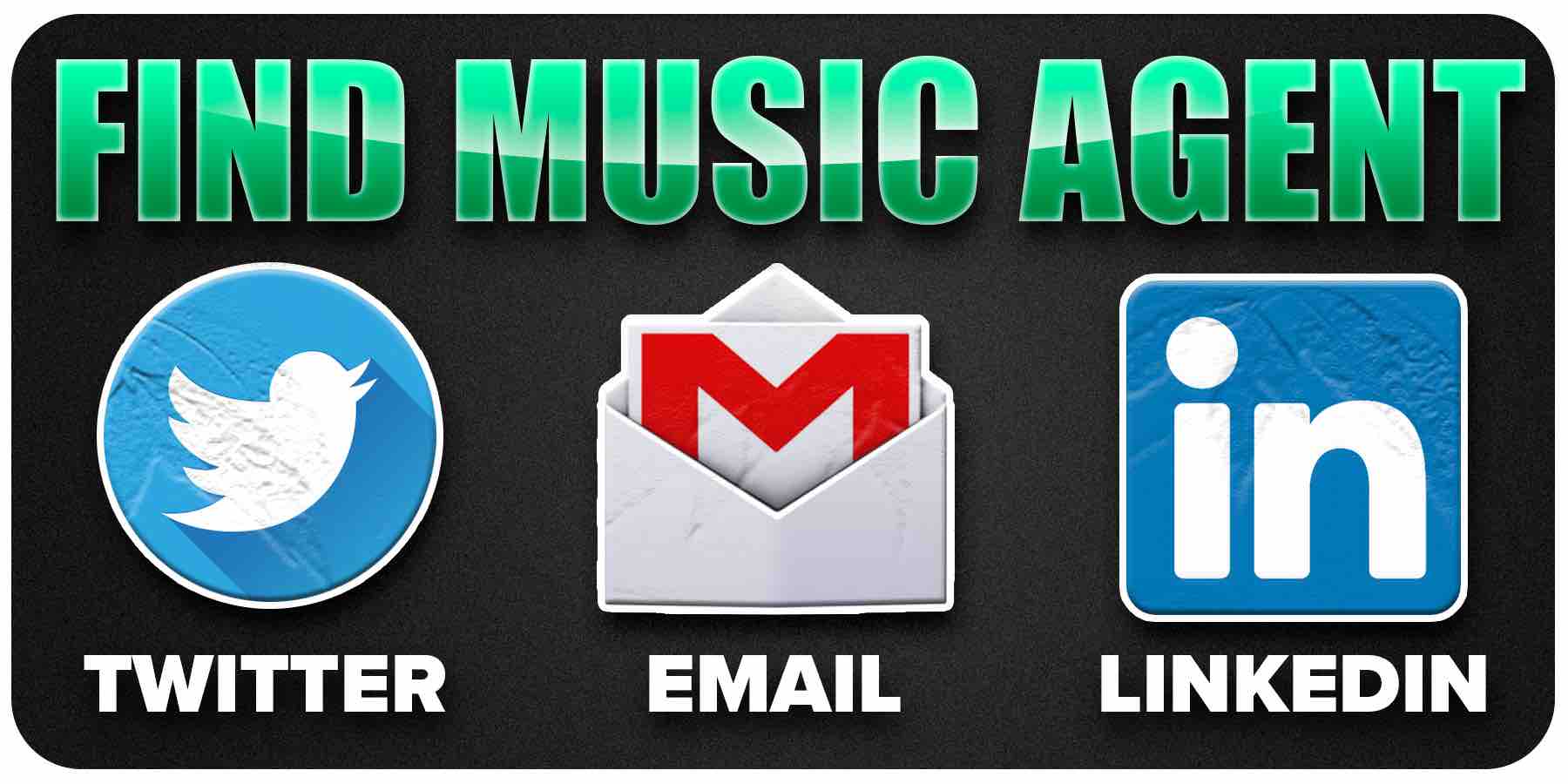
But, while you’re at it, make sure to ask those musicians if they’re represented by an agent!
If you’re lucky, one of them will be able to introduce you to an agent they’re already working with.
To get a record deal you need to put yourself out there as a recording artist.
Many artists slack in this regard, and it makes all the difference in getting record deals.
An agent is a person you turn to when you want to take your career to the next level.
Different Types of Agents In The Music Business
Top labels have tons of agents that do more than help you release music.
There are a couple of different types of agents, including management and booking agents.
Different types of agents in the music industry:
| Type of Agent | Roles and Responsibilities |
| Managing Agent | These agents manage artists’ contracts, including knowing what rights each party has and what each party is legally obligated to do. |
| Marketing Agent | These agents promote & market acts, helping to get the word out about their artists. This can include booking interviews and appearing on online blogs, social media outlets, and radio shows. |
| Sales agents | Agents help sell records, which means working hard to get reviews, sell copies of the album, and get people to listen to the act. |
| Contract Agents | These agents must know how to handle the details of agreements, contracts, and permissions, such as knowing how to get a permit for a show. |
| Accounting Agent | Agents must know how to handle taxes and bookkeeping, including keeping track of money, contracts, expenses, and deadlines. |
| Booking Agent | These agents get artists booked for venues and set up live tours. Ticketing and admissions are also handled by them. |
Agents are pretty insane and can take artists far.
Booking agents, on the other hand, help get the act booked on stages and in clubs.
(A promoter is a person who puts on the show, not the agent.)
Music agents work with management and booking agents and book the act, help market and promote the show, and handle all the details before, during, and after the show.
You can expect the music agent to have the most connections in the game.
What Does A Music Agent Do?
All major record labels will have their agent (probably hundreds!)
But, if you’re trying to get signed by an indie label, you’ll need to find an agent who works with those types of labels.
What exactly is a music agent?
Music agents are the gatekeepers of the music industry. They help artists get signed to labels, get gigs as opening bands, and get record contracts. A music agent helps people get into the music industry.
Music agents work in conjunction with a label to ensure that any new artist or band gets booked, promoted, and marketed properly.
In basic terms, an agent is a middleman between an artist and a label or manager.
Agent duties vary widely depending on the agency and artist, but most agents do a little bit of everything.
Here’s an overview of what a music agent does:
Services you can expect from a good music agent:
-
Find gigs
-
Book tour dates
-
Get media press
-
Book radio and TV appearances
-
Help coordinate everything.
In exchange, the agent gets a percentage of the artist’s earnings.
How much should you pay a music agent?
Music agents typically work on a commission-only basis and their job varies depending on the agency they work for and the artists they represent.
It’s rare for agents to get paid a salary - which is why they’re so selective with the artists they work with.
A good agent can boost your music career, but only if your music is worth it.
They only win when you’re making money!
Qualities of a Good Music Agent
Good agents have a bunch of good qualities.
The most important skills are interpersonal skills, grit, and the ability to always find a way to accomplish the mission.
It’s not easy to become an agent.
Major labels only hire the best agents to work at their record company.
They intern initially, work hard, and demonstrate their dedication and passion.
They take all of that experience and learn through osmosis.
After working on staff with an established agent for 10 years, under their wing and tutelage, they branch out on their own.
Some stay in the same agency for many years before establishing themselves.
Step #5. Seek Press and Media Coverage
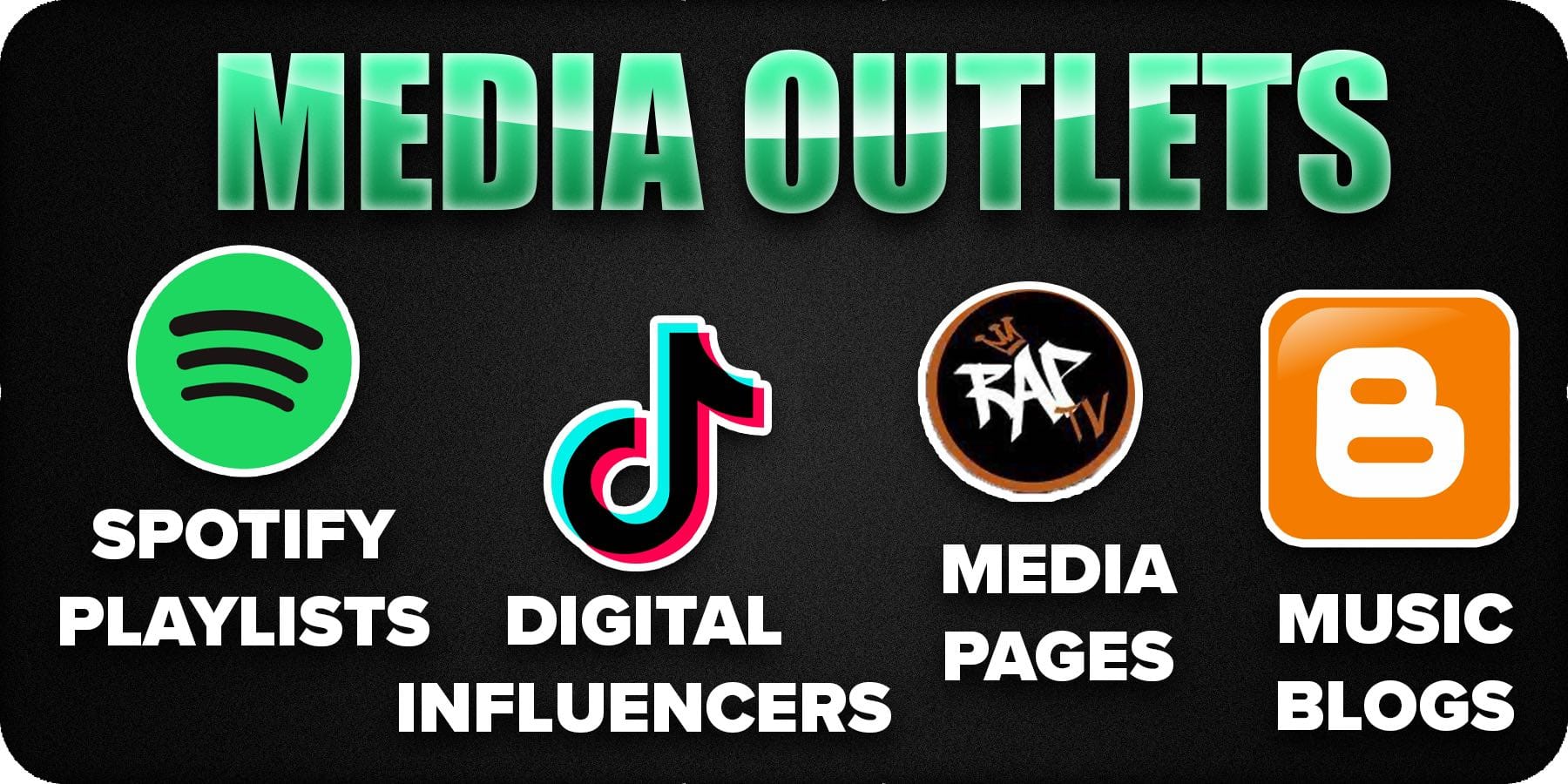
If you’ve ever dreamed of being discovered by a label through the press, then don’t skip this section.
If you want to get signed to a label, you’re going to have to put in the work.
Independent artists don't put enough attention on the press - it's hurting your music career.
You’re going to have to create a consistent presence in the public eye.
These things will help you get in front of labels and make them aware of your music.
Record labels are businesses that look for bands that have the potential to sell lots of records and make even more money from them.
That’s why they’re often said to have such stringent criteria for signing artists… You need any leverage you can get!
How To Network With Music Bloggers
Blogging has become a massive marketing tool for labels and artists all over the world.
There are a million different ways for you to promote yourself and your music on blogs.
This doesn’t mean spamming everyone on the internet and posting cringe-worthy content on your blog.
It does mean creating posts about your music, your brand, and everything in between.
Reach out to bloggers on LinkedIn and Twitter.
Engage with the posts that resonate with them, and exchange ideas in the comments.
You’ll be surprised how something so simple can have 10x results!
After, you can send press releases to publications that you’ve been in contact with.
You can also make direct outreach to writers who seem like they’d be interested in writing about you.
The key here is to keep in mind that you want to get your music in front of people in the music business.
That means you need to send outreach to people who you believe could be in a position to help you get signed.
Be Super Vocal About Your Music
How are labels supposed to know about your music when nobody is talking about it?
You can't get a record deal unless people know about you.
You don’t have to be the most engaging person on the planet to promote yourself, but you do have to talk about yourself and your music.
With every post, tweet, and comment, you should be talking about your music.
When you’re talking about your music, you’re giving labels an extra reason to be interested.
Network With Labels Through Influencers
The best way to get a record deal is through social capital.
The best way to do that is to get in contact with your influencers.
There are plenty of labels out there that are looking to sign new artists and they’re going to find them if you have the right influencers in your corner.
If you’re looking to get discovered by a label, networking is one of the most important aspects of the process.
Every day, make it a mission to reach out to 20 bloggers and 10 content creators. This will grow your public reach and give you leverage.
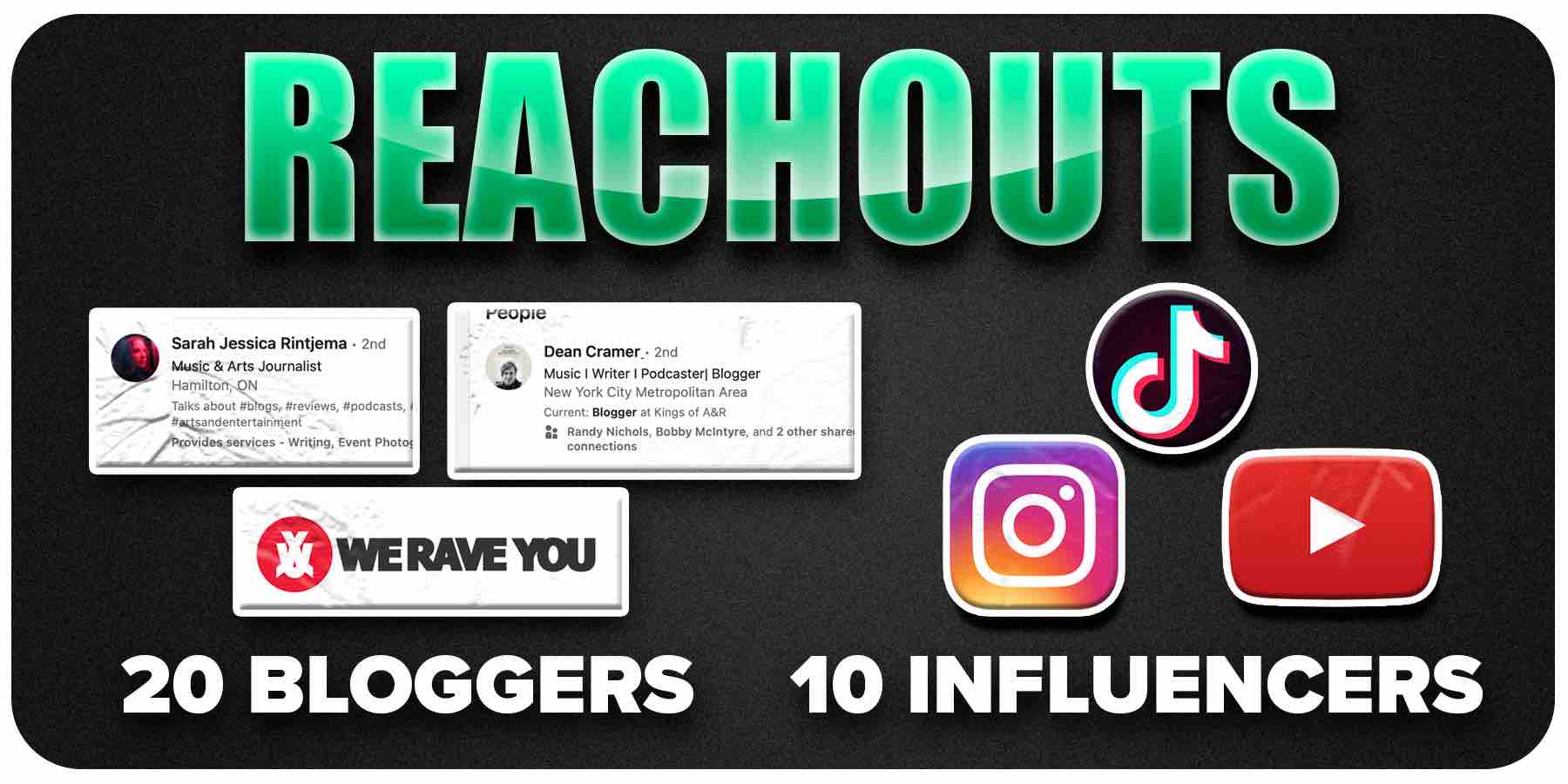
Once you start networking, you’ll find label A&Rs contacting you.
It’s true.
If you want to get signed to a label, networking is going to be a huge part of the process for you.
Boost Collective is the #1 up-and-coming music distribution for artists, letting you put your music out there for free.
Cultivate Consistent media outreach
The best way to get your music in front of labels is to get in front of them.
Put it simply, the press is the most effective way to get your music in front of label executives.
You can do this in a few ways. First, you can take advantage of the press you’ve already accumulated.
Find out what publications you’ve already been in contact with, and then reach out to them with your music.
This is the easiest way to start getting your music to press and in front of the people who can help you get signed.
Get your music on playlists now.
It’s time you get your exposure and listeners up - playlisting by Boost Collective has been trusted by 50,000+ artists worldwide.
It’s easy: Search your song, get on playlists, and track your campaign.
What’re you waiting for? Tap in - and get added to playlists in 24 hours.
Join Boost Collective for free here.
